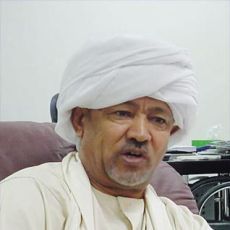Northern separatist party criticized for rejoicing south Sudan secession
January 12, 2011 (KHARTOUM) – A group of political parties allied with the Sudanese government has warned against “negative” acts of expression by pro-secession supporters in both north and south Sudan as the latter currently votes in a referendum on whether to remain united with the north or secede to form an independent state.

JPG supporters further toured several areas in Khartoum and distributed sweets in celebration of they termed as “the beginning of Sudan true independence”.
Sudan officially gained independence from the Anglo-Egyptian condominium rule in 1956, but intermittent civil wars between the predominantly Muslim north and the mainly Christian south permeated through the country’s post-independence history until 2005 when the two sides signed a peace deal promising the south a chance to become an independent state in 2011.
Most analysts expect southerners, who are embittered by the years of civil war and perceived discrimination by successive Muslim-controlled governments in the north, to vote overwhelmingly for secession.
The JPF is led by Al-Tayeb Mustafa who zealously supports the secession of south Sudan on the pretext that the 2005’s peace deal gave too many concessions to the south at the expense of the north. Mustafa, who is the maternal uncle of President Al-Bashir, argues that the north’s “Arab and Islamic” identity is being targeted by the Christian-African south.
On Wednesday, the Committee of Political Parties and Organizations (CPPO), an umbrella group comprising political parties backed by the Sudanese government, warned that acts of expressions carried out by JPF supporters would negatively affect the political situation and the “historic ties” between north and south Sudan in the post-referendum period.
CPPO chairperson, Abod Gabir appealed to the media to refrain from covering negative acts of expressions by separatists inside or outside Sudan, warning that such acts could affect post-referendum arrangements.
Gabir emphasized the importance of maintaining “historic ties” and economic cooperation between the north and the south in the case of secession.
North and South Sudan are yet to thrash out a host of post-referendum issues the most notable of which are citizenship, oil revenues and the status of the contested oil-producing area of Abyei, which straddles the tentative borders between the north and the south.
More condemnation against JPF actions came from the head of the SPLM in Khartoum, Paul Ring, who told reporters on Sunday that the behavior of JPF supporters represents “a dangerous indication and presages even more dangerous intentions towards the SPLM, saying that the authorities must tackle these acts.
Most northern political parties stand strongly in favor of Sudan unity and they blame the ruling National Congress Party for the likely secession of south Sudan.
(ST)

okucu pa lotinokwan
Northern separatist party criticized for rejoicing south Sudan secession
To those northerners saperatist,you knew the truth that why you start celebrating south independent so earily we will remain as brother althought we are now new country,since 1947 south sudan were strungling to gain their independent by 2011,all are the same for those who gain their indepenent before.
OKUCU PA LOTINOKWAN
Paul Ongee
Northern separatist party criticized for rejoicing south Sudan secession
Mr. Al-Tayeb Mustafa,
The rejoicing is your right as a sign of freedom of expression but remember that the 2005’s peace deal did not give too many concessions to the south at the expense of the north as you’re stating. It’s God’s given rights of the Southerners.
The successive Khartoum-based Islamic governments have misrepresented the identity, religion, cultural diversity and democratic performance in the country. So long as an individual person is a true citizen of Sudan, he/she is entitled to govern and be governed as well regardless of religious and cultural differences.
Not one-sided as Khartoum has been and still showing the world that non-Arabs/Muslims are never expected to assume presidency or are not entitled to development rights. If that is the case, what will be the implications of such discrimination? The best answer is “SEPARATION” so that Northern Sudan purify itself on the basis of one religion and one culture if indeed all Northerners are all Arabs and Muslims.
Paul Ongee
Khartoum, Sudan